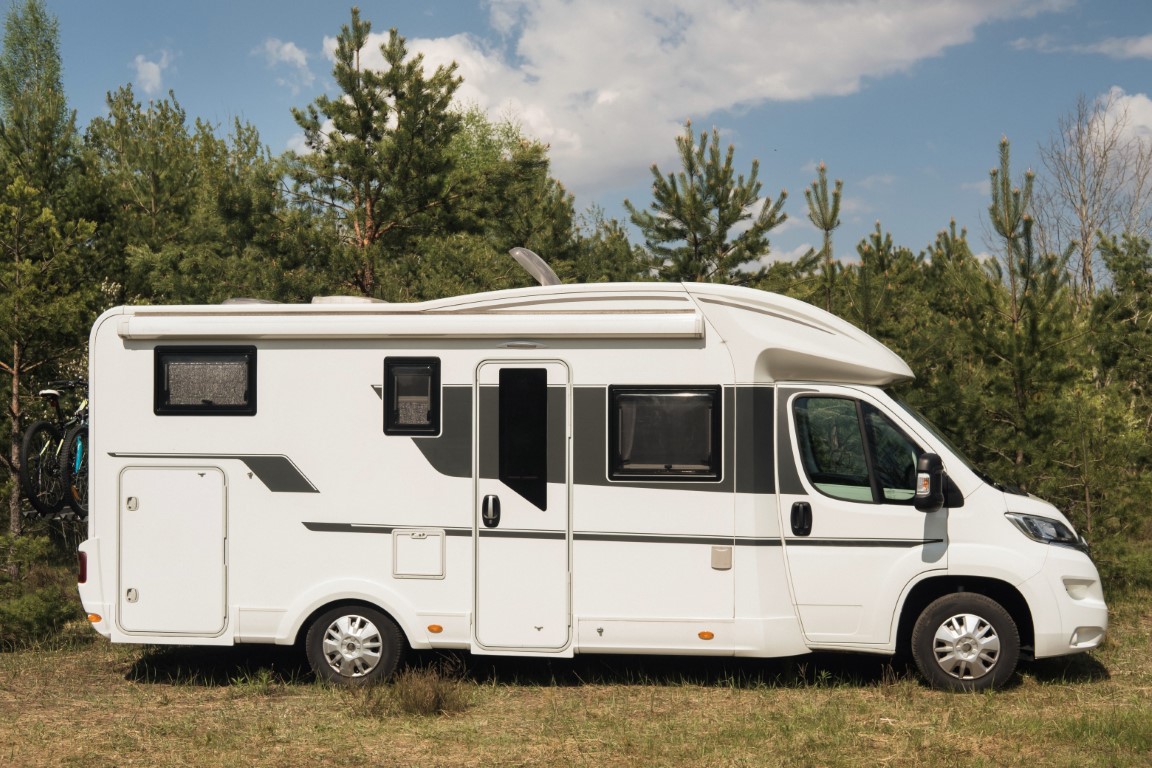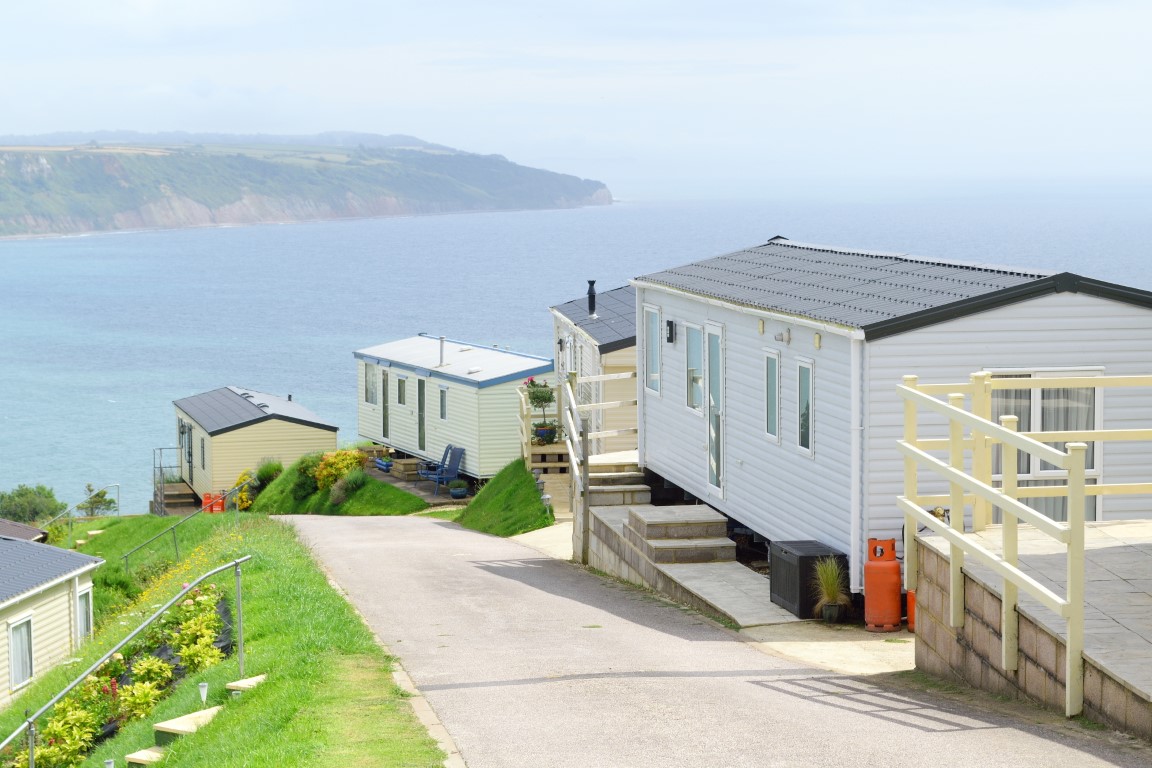The Cost of Motorhomes in the UK
Buying a motorhome? Read Insuremys guide on The Cost of Motorhomes before making any purchase with tips on buying options, finance, insurance and models.

Motorhomes are the kings of the home on wheels community, the wide range and fancy technological advancements have made them extremely popular in the UK over the years.
Whether you're a master of motorhomes or someone looking to embark on their first home-on-wheels adventure, understanding the cost of motorhomes in the UK is essential. This guide will explain the factors that affect motorhome costs, including types, models, insurance, maintenance, and financing.
Types of Motorhomes:
Before discussing costs, it's important to learn about the various types of motorhomes in the UK. Motorhomes come in various shapes and sizes, each catering to different preferences and needs. Here are the primary types:
1. Campervans: Campervans, also known as Class B motorhomes, are compact and easy to maneuver. They are typically built on a van chassis and offer basic amenities such as sleeping quarters, a small kitchenette, and a seating area. Campervans are ideal for couples or solo travelers seeking a minimalist, on-the-go experience.
2. Low-Profile Motorhomes: Low-profile motorhomes, often referred to as Class C motorhomes, provide a bit more space and comfort compared to campervans. They feature a sleek, streamlined design with a lowered roofline, making them more aerodynamic. Low-profile motorhomes typically include a kitchen, bathroom, sleeping areas, and additional seating.
3. Coachbuilt Motorhomes: Coachbuilt motorhomes, also known as Class A motorhomes, are some of the largest and most luxurious options available. They are custom-built on a dedicated motorhome chassis and offer spacious interiors with separate living and sleeping areas, fully equipped kitchens, bathrooms with showers, and ample storage. Coachbuilt motorhomes are suitable for families and travelers seeking a home away from home.
4. A-Class Motorhomes: A-Class motorhomes are a subcategory of coachbuilt motorhomes known for their integrated design. They do not have a separate cab compartment like low-profile or coachbuilt motorhomes, providing a panoramic view from the driver's seat. A-Class motorhomes often boast high-end features and luxurious amenities.

Factors Influencing Motorhome Cost:
The cost of motorhomes in the UK can vary significantly based on several factors. Understanding these influences will help you make an informed decision when choosing the right motorhome for your needs and budget.
1. Size and Layout: The size and layout of a motorhome play a significant role in determining its cost. Larger motorhomes with more spacious interiors, multiple bedrooms, and additional features such as slide-outs tend to be more expensive than compact models. The layout, including the arrangement of living, sleeping, and kitchen areas, can also affect the price.
2. Brand and Build Quality: Established motorhome manufacturers with a reputation for quality craftsmanship often command higher prices. These motorhomes are known for their durability, comfort, and resale value. While reputable brands may come with a premium price tag, they can offer peace of mind and reliability.
3. New vs. Used: One of the most significant cost differences in motorhomes is whether you opt for a new or used model. New motorhomes offer the advantage of modern features, warranties, and customization options but come at a higher initial cost. Used motorhomes can be more budget-friendly but require careful inspection to ensure they are in good condition.
4. Optional Extras: Motorhomes can be customised with various optional extras, allowing you to tailor your vehicle to your specific needs and preferences. These extras can include features like awnings, solar panels, air conditioning, satellite TV systems, and advanced security measures such as GPS trackers. Each added feature contributes to the overall cost, so it's essential to prioritize what matters most to you.
Average Costs of Motorhomes:
To give you a better idea of the cost range for motorhomes in the UK, here's a breakdown of average prices by type:
- Campervans: Entry-level campervans can start at around £40,000 to £50,000. Mid-range campervans with more amenities and customisation options can range from £60,000 to £80,000. High-end campervans, often converted from premium van models, can cost £100,000 or more.
- Low-Profile Motorhomes: Low-profile motorhomes typically start at £50,000 for basic models. Mid-range options with additional features and better build quality may range from £60,000 to £80,000. High-end low-profile motorhomes can exceed £100,000, especially when equipped with luxury amenities.
- Coachbuilt Motorhomes: Entry-level coachbuilt motorhomes can be found in the £60,000 to £80,000 range. Mid-range models with more extensive layouts and amenities may cost between £80,000 and £120,000. High-end coachbuilt motorhomes, often from premium manufacturers, can surpass £150,000.
- A-Class Motorhomes: A-Class motorhomes are at the top of the price spectrum. Entry-level A-Class models typically start at around £90,000 to £120,000. Mid-range options with advanced features and high-quality materials may range from £120,000 to £200,000 or more. Luxury A-Class motorhomes can exceed £250,000.
It's important to note that these price ranges are approximate and can vary based on factors such as brand, model year, features, and optional extras. When budgeting for a motorhome, it's essential to consider not only the initial purchase price but also ongoing costs such as insurance, maintenance, and storage.
Storage:
When you're not on the road, finding suitable storage for your motorhome is crucial to protect it from the elements, theft, and deterioration. Here are some common motorhome storage options in the UK:
1. Home Storage: Storing your motorhome at home can be a cost-effective option if you have sufficient space and meet local regulations. However, ensure you have secure parking, proper access, and consider any neighbourhood restrictions.
2. Storage Facilities: Numerous storage facilities across the UK provide secure parking for motorhomes of various sizes. Prices for storage facilities can vary depending on factors such as location, the level of security offered (such as 24/7 surveillance), and whether the storage is indoor or outdoor. Read more in our motorhome storage guide.
3. Clubs: Joining a club such as the Caravan and Motorhome club often provides access to affordable storage options. Many motorhome clubs have their storage facilities or partnerships with local providers, offering discounts to members.
It's important to research and compare storage options to find the one that best suits your needs and budget.

Insurance:
Securing comprehensive insurance is vital to protect your investment and ensure peace of mind during your travels. Here are key considerations when it comes to motorhome insurance:
1. Cover: Look for insurance policies that provide cover for a range of risks, including accidental damage, theft, fire, storm damage, and public liability. Additionally, consider insurance that covers personal belongings, awnings, and fixtures inside the motorhome.
2. New vs. Used: Insurance costs may vary depending on whether your vehicle is new or used. Newer models often have higher replacement values, which can impact insurance premiums.
Read our cost of motorhome insurance guide for more information or get a quote now.
Security Measures: Installing approved security devices can not only enhance the safety of your motorhome but also lead to potential insurance discounts. These security measures may include alarms, immobilizers, wheel locks, and GPS trackers. Many insurers offer reduced premiums to policyholders who invest in these safety features. Take a look here at some of the best trackers available,
Motorhome Financing Options:
Purchasing a motorhome is a significant financial investment, and not everyone has the means to pay for one outright. Fortunately, various financing options are available to help spread the cost over time:
1. Personal Loans: Many banks and financial institutions offer personal loans specifically designed for purchasing motorhomes. With a personal loan, you can borrow a lump sum and repay it over a fixed period with interest. It's essential to compare different loan providers to find the best interest rates and terms that align with your financial situation.
2. Dealer Financing: Most motorhome dealerships offer financing options to their customers. Dealer financing allows you to arrange both the purchase and financing at the same location, offering convenience. However, it's crucial to carefully review the terms and interest rates offered to ensure they fit your budget.
3. Hire Purchase Agreements: Hire purchase agreements are a popular choice for those who want eventual ownership of their motorhome but need to spread the cost over time. With a hire purchase agreement, you pay an initial deposit followed by monthly installments. Once all payments are complete, ownership of the motorhome transfers to you.
4. Leasing: Leasing a motorhome allows you to use it for a fixed period while making monthly lease payments. At the end of the lease term, you return the motorhome to the leasing company. Motorhome leasing is ideal for those who prefer flexibility and don't want to commit to long-term ownership.
When considering financing options, it's crucial to assess your financial situation and determine which option best suits your budget and preferences. Be sure to factor in interest rates, down payments, and the total cost of financing over the loan or lease term.
Additional Costs to Consider:
When budgeting for a motorhome, it's essential to anticipate and plan for additional costs that may arise during your ownership:
1. Running Costs: Like any vehicle, motorhomes require regular maintenance, servicing, and insurance. You should budget for expenses such as fuel, electricity, water, and waste disposal. Routine maintenance is critical to keep your motorhome in top condition and ensure safe travels.
2. Campsite Fees: If you plan to use your motorhome at campsites or dedicated sites, you'll need to budget for campsite fees. These fees can vary based on the location, facilities provided, and the duration of your stay. Researching campsite options and their associated costs can help you plan your trips effectively.
3. Road Tax and Licensing: You may require road tax and appropriate licensing, depending on their weight and usage. Ensure you understand the legal requirements and associated costs for road tax and licensing in your region.
4. Upgrades and Renovations: Over time, you may decide to upgrade or renovate your motorhome to enhance its features or aesthetics. Setting aside a budget for such improvements allows you to customise your motorhome to suit your evolving needs and preferences.
In conclusion, owning a motorhome in the UK offers incredible opportunities for travel, adventure, and exploration. However, it's essential to be well-informed about the various costs associated with motorhome ownership, from the initial purchase price to ongoing expenses such as insurance, maintenance, and storage.
By understanding the factors that influence motorhome costs and carefully planning your budget, you can embark on memorable journeys while enjoying the freedom and comfort that motorhome living provides. Whether you're a solo traveller, a couple, or a family, the open road awaits, and your motorhome adventure begins with a well-prepared budget and a sense of wanderlust. Happy travels!




